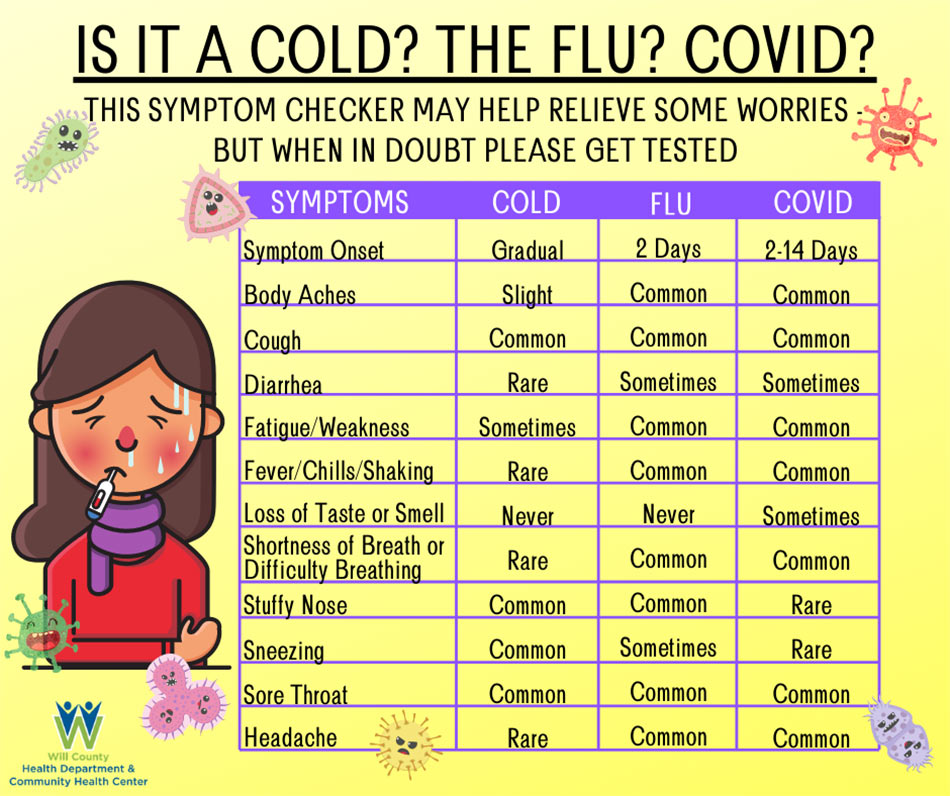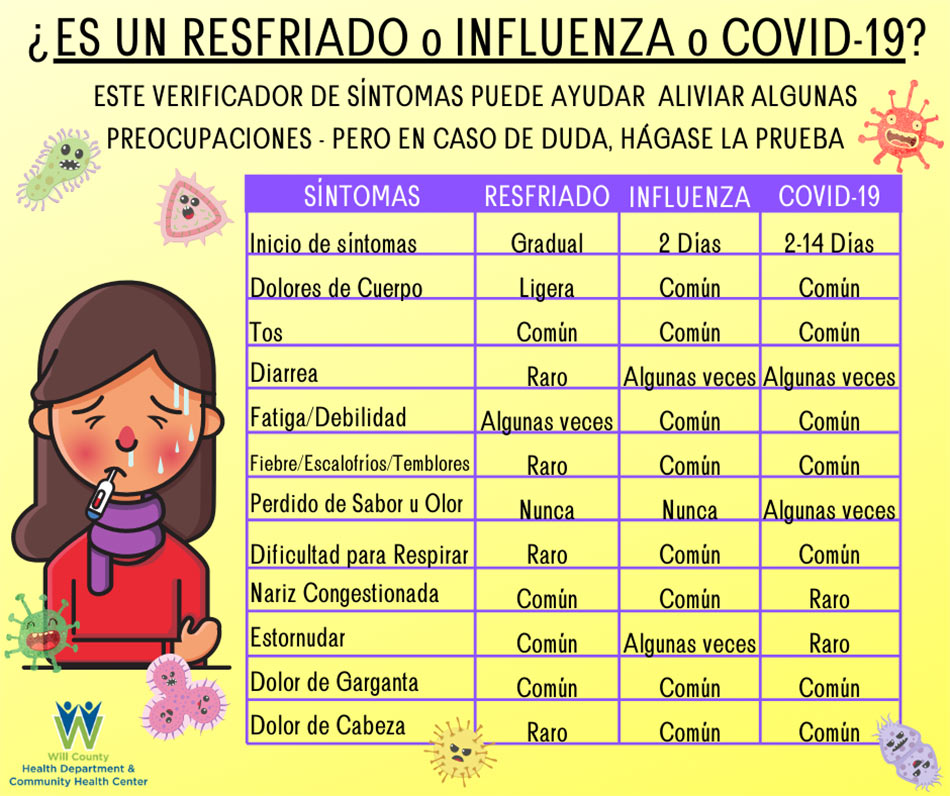ABOUT CORONAVIRUS DISEASE PREVENTION AND TREATMENT
About Coronavirus & Disease Prevention
IS IT A COLD? THE FLU? COVID?

¿ES UN RESFRIADO INFLUENZA o COVID-19?

The Latest CDC Respiratory Virus Guidance for COVID-19, flu, RSV and more
The CDC has recently issued new guidance to provide practical recommendation and information to help people lower risk from a range of common respiratory illnesses, including COVID-19, flu and RSV.
Read the latest guidance here.
CDC Isolation and Quarantine Guidance
Testing positive or being exposed to COVID-19 or other respiratory illnesses requires precautions to stop further spread of the virus. The CDC has recently issued new guidelines about when quarantining and isolation are necessary for all respiratory illnesses, including COVID-19.
Read the new precautions to take when you’re sick here.
Find Free tests, locate COVID-19 treatments & Vaccines
Masks
Wearing a mask is an additional prevention strategy that you can choose to further protect yourself and others.
Testing
COVID tests can help you know if you have COVID-19 when you have symptoms, have been exposed, or are about to meet up with others.
Treatment
Treatments for COVID-19 are now widely available. If you test positive for COVID-19, talk to a doctor as soon as possible about treatment options. The Test-to-Treat program is one easy way to get treatment. Test-to-Treat locations will give you a test and treatment.
Find COVID-19 Medications near you.
Vaccines
Being fully vaccinated is the best way to protect against sever illness and hospitalization from COVID-19.
Read the latest guidance from the CDC on the 2023-24 COVID-19 vaccinations.
COVID-19 and Respiratory Illness Data
COVID-19 Hospitalizations by County
The CDC tracks COVID-19 hospitalizations by category. Categories of low, medium and high are assigned to each county. See the CDC data map here.
IDPH Seasonal Respiratory Illness Dashboard
The Illinois Department of Public Health maintains a Seasonal Respiratory Illness Dashboard which includes data on COVID-19, Flu, RSV and other respiratory illnesses. See the dashboard and data here.
